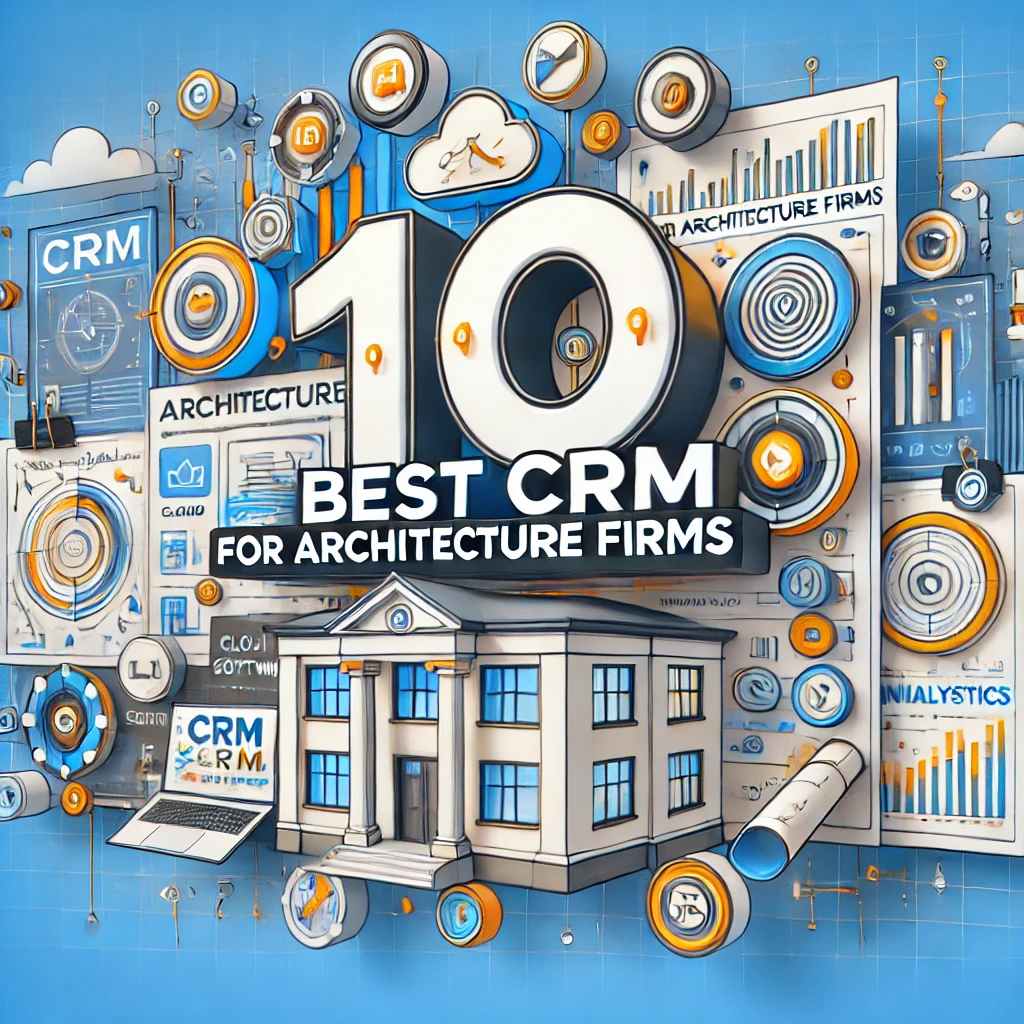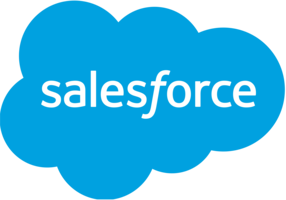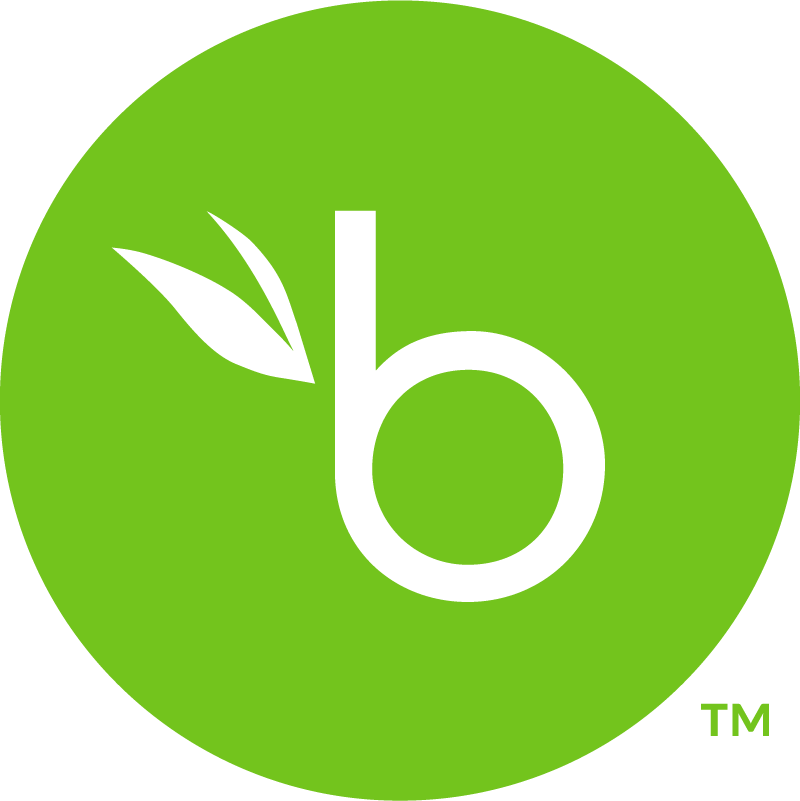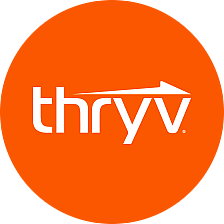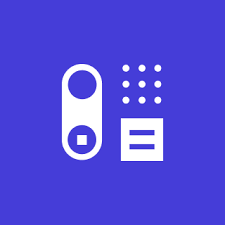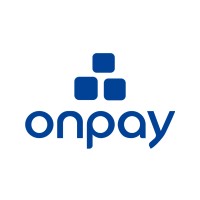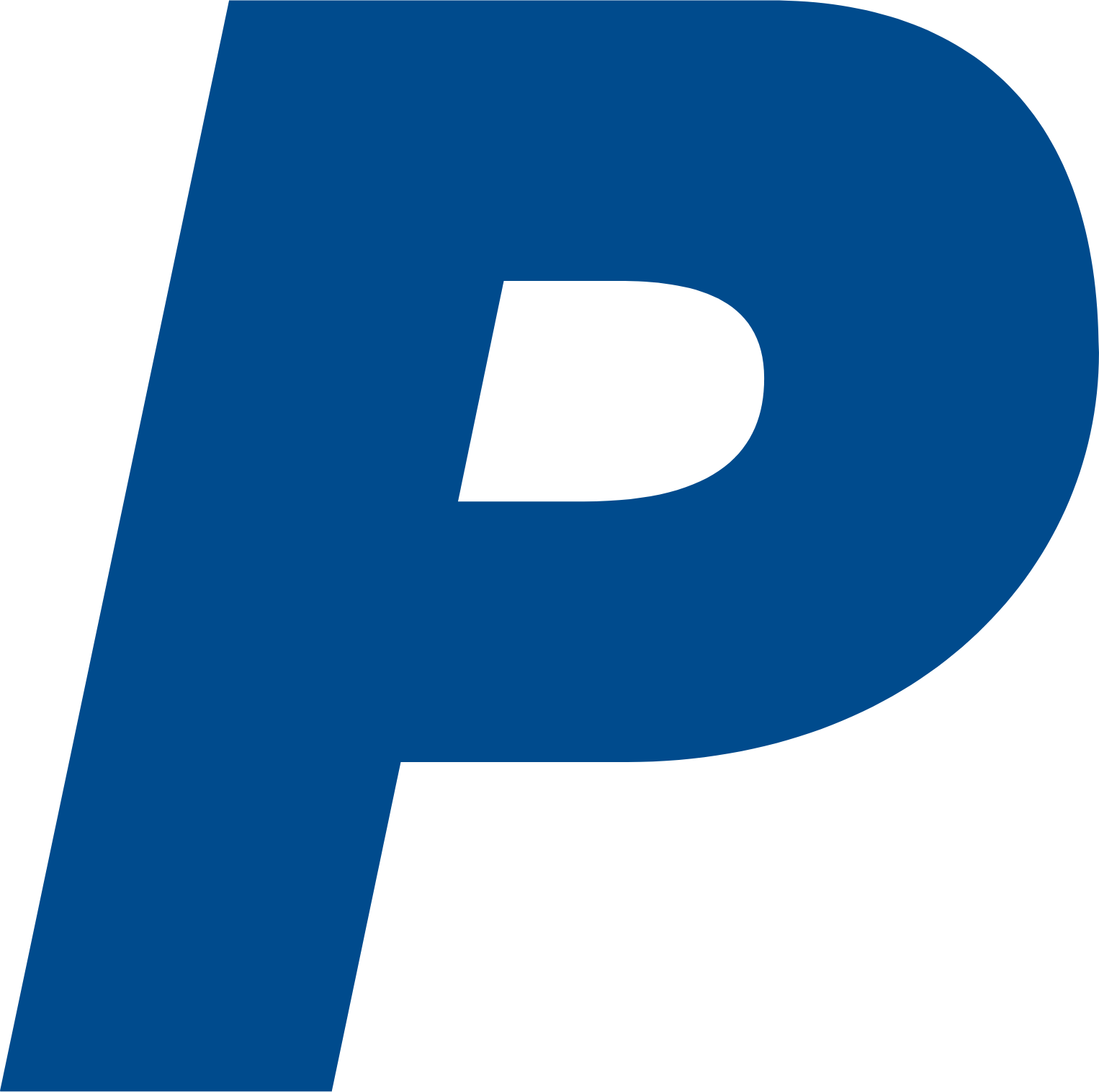TOP 7 CRM Systems for Healthcare in 2025

Discover cutting-edge solutions tailored to streamline patient care, enhance communication, and boost overall efficiency within healthcare organizations. Stay ahead of the curve as we delve into each CRM system’s features, benefits, and unique capabilities, providing valuable insights for healthcare professionals looking to optimize their workflows. From seamless patient interactions to robust data management, find the perfect CRM solution to elevate your healthcare services. Don’t miss out on the latest industry trends and innovations – read our article now!
What is healthcare software?
Healthcare software refers to computer programs, applications, or systems designed to manage and streamline various aspects of healthcare-related processes. These software solutions are crucial in improving efficiency, accuracy, and overall quality of healthcare delivery. Healthcare software can be used across different domains within the healthcare industry, including hospitals, clinics, laboratories, and other healthcare settings. Here are some common types of healthcare software:
- Electronic Health Record (EHR) Systems: EHR systems digitize patient records, making them easily accessible to healthcare providers. They typically include patient demographics, medical history, diagnoses, medications, treatment plans, immunization records, laboratory test results, and more.
- Practice Management Software: This software helps healthcare providers manage administrative and financial tasks, such as appointment scheduling, billing, insurance claims processing, and reporting.
- Hospital Information Systems (HIS): HIS integrates various administrative, clinical, and financial applications within a hospital or healthcare facility. It includes patient registration, billing, laboratory information, pharmacy management, and more modules.
- Picture Archiving and Communication System (PACS): PACS is used to store, retrieve, manage, and distribute medical images, such as X-rays, MRIs, and CT scans. It facilitates the sharing of these images among healthcare professionals.
- Telehealth Software: With the rise of telemedicine, telehealth software enables remote consultations, video conferencing, and virtual visits between healthcare providers and patients. It supports the delivery of healthcare services without the need for in-person visits.
- Clinical Decision Support Systems (CDSS): CDSS assists healthcare providers in making informed decisions by providing relevant clinical information and recommendations based on patient data and medical knowledge.
- Health Information Exchange (HIE): HIE systems allow the electronic sharing of patient information among different healthcare organizations, improving care coordination and reducing duplication of tests and procedures.
- Laboratory Information Management System (LIMS): LIMS is used in laboratories to manage and track samples, tests, and associated data. It helps streamline laboratory workflows and ensures data accuracy.
- Remote Patient Monitoring (RPM): RPM software enables the continuous monitoring of patients’ health outside of traditional healthcare settings. It often involves using connected devices to collect and transmit health data to healthcare providers.
Healthcare software enhances patient care, improves operational efficiency, and advances medical research and innovation. It is an integral part of the ongoing digital transformation in the healthcare industry.
The main features of CRM for healthcare
Customer Relationship Management software for healthcare, often referred to as Patient Relationship Management (PRM) in this context, is designed to help healthcare providers manage and enhance patient interactions, improve patient satisfaction, and streamline administrative processes. The main features of CRM for healthcare typically include:
- Patient Information Management:
- Patient Records: Store and manage comprehensive patient records, including personal details, medical history, allergies, medications, and treatment plans.
- Demographics: Capture and maintain demographic information to better understand the patient population.
- Appointment Scheduling:
- Scheduling System: Enable easy and efficient appointment scheduling for patients and staff, reducing waiting times and improving clinic efficiency.
- Automated Reminders: Send automated appointment reminders via email, text messages, or phone calls to reduce no-shows.
- Communication and Engagement:
- Communication Channels: Facilitate communication between healthcare providers and patients through secure messaging, email, or patient portals.
- Patient Education: Provide educational materials and resources to patients to help them better understand their conditions and treatment plans.
- Billing and Payments:
- Billing Integration: Integrate billing functionalities to streamline the invoicing and payment processes, making it easier for patients to understand and settle their bills.
- Insurance Claims Processing: Assist in submitting and processing insurance claims for faster reimbursement.
- Referral Management:
- Referral Tracking: Manage and track patient referrals to specialists or other healthcare providers, ensuring continuity of care.
- Communication with Referring Providers: Enable seamless communication and information exchange between referring and receiving healthcare providers.
- Analytics and Reporting:
- Data Analysis: Provide tools for analyzing patient data, appointment trends, and other relevant metrics to identify areas for improvement and optimize healthcare delivery.
- Customizable Reports: Generate customizable reports for various purposes, such as performance evaluation, compliance reporting, and financial analysis.
- Integration with EHR/EMR:
- EHR/EMR Integration: Integrate seamlessly with Electronic Health Record (EHR) or Electronic Medical Record (EMR) systems to ensure a unified and comprehensive view of patient information.
- Security and Compliance:
- HIPAA Compliance: Adhere to healthcare data security standards, such as the Health Insurance Portability and Accountability Act (HIPAA), to protect patient privacy and maintain compliance.
- Patient Feedback and Surveys:
- Patient Satisfaction Surveys: Collect patient feedback through surveys to gauge satisfaction levels and identify areas for improvement.
- Complaint Resolution: Provide mechanisms for addressing and resolving patient complaints and concerns.
- Mobile Access:
- Mobile Applications: Offer mobile applications to allow patients to access their information, schedule appointments, and communicate with healthcare providers conveniently from their mobile devices.
Implementing CRM for healthcare can improve patient care, increase operational efficiency, and better overall patient experiences. It helps healthcare providers build and maintain strong relationships with their patients while optimizing internal processes.
Our TOP-7 software for medical institutions in 2024

1. Salesforce Health Cloud:
- A comprehensive healthcare CRM platform designed to improve patient engagement, care coordination, and overall healthcare management.
Salesforce Health Cloud is a cloud-based platform developed by Salesforce specifically for the healthcare industry. It is designed to help healthcare providers, payers, and other stakeholders manage patient relationships, streamline processes, and improve overall patient care. Here are some key features and aspects of Salesforce Health Cloud:
- Patient-Centric Approach: Health Cloud is built around a patient-centric model, allowing healthcare organizations to have a comprehensive view of each patient’s health history, preferences, and interactions with the healthcare system.
- 360-Degree View of the Patient: It provides a unified view of patient data, including medical history, treatment plans, medications, and social determinants of health. This 360-degree view helps healthcare professionals make more informed decisions and provide personalized care.
- Care Coordination: Health Cloud facilitates better collaboration and communication among healthcare teams. It allows different healthcare providers, including doctors, nurses, and specialists, to share information and work together to create and manage care plans.
- Engagement and Communication: The platform includes tools for patient engagement and communication. This can involve sending appointment reminders, sharing educational materials, and facilitating secure communication between patients and healthcare providers.
- Integration with Electronic Health Records (EHR): Health Cloud is designed to integrate seamlessly with electronic health record (EHR) systems, enabling healthcare organizations to leverage existing data and infrastructure.
- Analytics and Reporting: The platform includes tools that allow healthcare organizations to derive insights from the collected data. This can help identify trends, optimize workflows, and improve overall efficiency.
- Scalability and Customization: Salesforce Health Cloud is highly customizable, allowing healthcare organizations to tailor the platform to their needs. It is also scalable, accommodating healthcare providers’ growth and evolving requirements.
- Security and Compliance: Given the sensitive nature of healthcare data, Salesforce Health Cloud adheres to industry-standard security practices and compliance requirements, such as HIPAA (Health Insurance Portability and Accountability Act) in the United States.
- AppExchange Ecosystem: Salesforce’s AppExchange platform allows users to extend Health Cloud’s functionality by integrating third-party applications and solutions that cater to specific healthcare needs.
Salesforce Health Cloud is part of the broader Salesforce ecosystem, and its integration capabilities make it a valuable tool for healthcare organizations looking to enhance patient care, streamline operations, and improve overall outcomes.
2. HubSpot for Healthcare:
- HubSpot offers a versatile CRM system that can be adapted for healthcare needs, with patient relationship management and communication features.
HubSpot CRM is a versatile platform that can be adapted for various industries, including healthcare. HubSpot CRM provides tools for managing customer relationships, communication, and marketing efforts. While it may not have a specific product called “HubSpot Health CRM,” users in the healthcare industry can leverage HubSpot CRM to meet their particular needs. Here are some ways in which HubSpot CRM can be adapted for healthcare:
- Patient Relationship Management (PRM): HubSpot CRM can be customized to manage patient relationships effectively. This includes tracking patient interactions, managing communication, and creating a centralized database of patient information.
- Communication and Engagement: HubSpot’s communication tools can be utilized to engage patients. This may involve sending appointment reminders, educational materials, and updates about healthcare services.
- Marketing Automation: Healthcare providers can use HubSpot’s marketing automation features to create targeted campaigns, nurture patient leads, and provide relevant content to their audience.
- Integration with Healthcare Systems: HubSpot CRM can be integrated with other healthcare systems, such as Electronic Health Records (EHR) or other specialized healthcare software, to ensure seamless data flow and a comprehensive view of patient information.
- Customization for Healthcare Workflows: The CRM system can be customized to accommodate specific healthcare workflows, ensuring that processes align with the unique needs of healthcare providers.
- Analytics and Reporting: HubSpot provides tools to help healthcare organizations track and analyze patient interactions, campaign effectiveness, and other key metrics.
- Compliance: Healthcare organizations must adhere to strict privacy and security regulations. HubSpot CRM allows customization to meet compliance standards, and users can configure security settings to protect sensitive patient data.
It’s important to note that while HubSpot CRM can be adapted for healthcare needs, organizations may need to work with HubSpot’s customization features or consult with HubSpot experts to tailor the system to specific healthcare requirements.
3. Microsoft Dynamics 365 for Healthcare:
- A robust CRM solution that integrates seamlessly with Microsoft’s productivity tool suite provides a holistic approach to healthcare management.
Microsoft Dynamics 365 is a suite of cloud-based business applications that covers various aspects, including customer relationship management (CRM), enterprise resource planning (ERP), and other business applications. While Dynamics 365 itself is a versatile platform applicable to various industries, including healthcare, Microsoft has specific solutions and features tailored for the healthcare sector within Dynamics 365.
Here are key aspects and features of Microsoft Dynamics 365 for Healthcare:
- Patient Engagement: Dynamics 365 for Healthcare facilitates patient engagement through tools for appointment scheduling, communication, and personalized care plans. It aims to improve the overall patient experience and satisfaction.
- Care Coordination: The platform enables better collaboration among healthcare teams by providing a unified view of patient information. This supports care coordination and helps create and manage comprehensive care plans.
- Electronic Health Records (EHR) Integration: Microsoft Dynamics 365 can integrate with electronic health record (EHR) systems, allowing healthcare providers to access and manage patient data seamlessly.
- 360-Degree Patient View: The platform offers a comprehensive view of patient data, including medical history, treatment plans, and interactions with healthcare providers. This 360-degree view helps in making informed decisions and providing personalized care.
- Telehealth Integration: Given the increasing importance of telehealth, Dynamics 365 for Healthcare may offer integrations or features that support virtual consultations, remote monitoring, and telemedicine services.
- Analytics and Insights: The solution provides analytics tools for deriving insights from healthcare data. This includes tracking key performance indicators, identifying trends, and improving operational efficiency.
- Security and Compliance: Dynamics 365 for Healthcare adheres to industry standards for security and compliance, including healthcare-specific regulations such as the Health Insurance Portability and Accountability Act (HIPAA).
- Customization and Scalability: Like other Dynamics 365 applications, the healthcare module is customizable to meet the specific needs of healthcare organizations. It is also scalable to accommodate growth and changing requirements.
- Integration with Microsoft Ecosystem: Dynamics 365 integrates seamlessly with other Microsoft products and services, such as Microsoft 365, Azure, and Power Platform, providing a comprehensive and connected ecosystem.
Microsoft may introduce updates and new features to Dynamics 365 for Healthcare as technology evolves. For the latest and most accurate information, it is recommended to check the official Microsoft Dynamics 365 website or contact Microsoft directly.
4. Zoho CRM for Healthcare:
- Zoho CRM offers customizable solutions for healthcare organizations, focusing on patient relationships, data management, and collaboration.
Zoho CRM is a cloud-based platform widely used across various industries. Zoho CRM provides tools for managing customer relationships, sales processes, and marketing efforts. While Zoho is a versatile solution, it can be adapted to meet specific needs in the healthcare industry. Here are some ways in which Zoho CRM can be applied in a healthcare setting:
- Patient Relationship Management (PRM): Zoho CRM can be customized to manage patient relationships effectively. It allows healthcare organizations to track patient interactions, manage communication, and maintain a centralized database of patient information.
- Appointment Scheduling: The platform can be configured for appointment scheduling and reminders, helping healthcare providers and patients stay organized and on track with appointments.
- Communication and Engagement: Zoho CRM’s communication tools can be leveraged for patient engagement. This includes communicating about appointments, follow-up care, and general healthcare information.
- Marketing Automation: Zoho CRM offers marketing automation features that healthcare providers can use to create targeted campaigns, nurture patient leads, and provide relevant health-related content.
- Integration with Healthcare Systems: Zoho CRM can be integrated with other healthcare systems, such as Electronic Health Records (EHR) or other specialized healthcare software, to ensure seamless data flow and a comprehensive view of patient information.
- Customization for Healthcare Workflows: Zoho CRM is highly customizable, allowing healthcare organizations to tailor the system to accommodate specific workflows and processes unique to the healthcare industry.
- Analytics and Reporting: Zoho CRM provides tools that enable healthcare organizations to track and analyze patient interactions, campaign effectiveness, and other key metrics for continuous improvement.
- Security and Compliance: Healthcare organizations must adhere to strict privacy and security regulations. Zoho CRM allows customization to meet compliance standards, and users can configure security settings to protect sensitive patient data.
It’s important to note that while Zoho CRM can be adapted for healthcare needs, organizations may need to work with Zoho’s customization features or consult with Zoho CRM experts to tailor the system to specific healthcare requirements.
5. Cerner HealtheIntent:
- Cerner specializes in healthcare technology, and HealtheIntent is a population health management platform with CRM capabilities.
Cerner HealtheIntent is a population health management platform developed by Cerner Corporation, a leading provider of health information technologies. HealtheIntent is designed to help healthcare organizations aggregate, normalize, and analyze health data from various sources to support population health management initiatives. Here are key features and aspects of Cerner HealtheIntent:
- Population Health Management: HealtheIntent is focused on population health management, which involves managing the health of a defined group of individuals to improve overall outcomes and reduce healthcare costs. It enables healthcare organizations to identify and address the health needs of specific populations.
- Data Aggregation and Normalization: The platform aggregates data from diverse sources, including electronic health records (EHRs), claims data, social determinants of health, and other relevant sources. This helps create a comprehensive and unified view of patient health across the care continuum.
- Analytics and Insights: Cerner HealtheIntent provides analytics tools to derive insights from aggregated health data. Healthcare organizations can use these insights to identify trends, assess the health of specific populations, and make informed decisions for care management.
- Interoperability: The platform is designed to support interoperability, allowing it to connect with various healthcare systems and data sources. This interoperability is crucial for obtaining a complete and accurate picture of patient health.
- Care Coordination: HealtheIntent supports care coordination efforts by providing a holistic view of patient information. This helps healthcare providers create and manage care plans, enhance communication, and improve the overall quality of care.
- Engagement and Outreach: The platform includes tools for patient engagement and outreach. Healthcare organizations can use these tools to communicate with patients, deliver educational materials, and encourage active participation in their health management.
- Risk Stratification: HealtheIntent includes features for risk stratification, helping healthcare organizations identify high-risk patients who may require additional attention or intervention. This allows for targeted care management efforts.
- Security and Compliance: Given the sensitive nature of health data, Cerner HealtheIntent adheres to security and privacy standards to protect patient information and comply with regulations such as HIPAA (Health Insurance Portability and Accountability Act).
6. SugarCRM for Healthcare:
- SugarCRM provides a flexible CRM platform that can be tailored to meet the unique needs of healthcare organizations, fostering patient engagement and satisfaction.
SugarCRM is a CRM platform widely used across various industries, including healthcare. SugarCRM provides tools for managing customer relationships, automating sales processes, and improving overall customer engagement.
In healthcare, organizations often leverage CRM systems like SugarCRM to enhance patient relationships, streamline communication, and manage data effectively. Here are some ways SugarCRM can be utilized in the healthcare industry:
- Patient Relationship Management (PRM): SugarCRM can be customized to manage patient information, track interactions, and enhance communication between healthcare providers and patients. This can include appointment scheduling, follow-up reminders, and personalized communication to improve patient engagement.
- Sales and Marketing Automation: Healthcare organizations can use SugarCRM’s automation features to streamline marketing campaigns, track leads, and manage sales processes. This can be particularly useful for healthcare providers looking to attract new patients or engage in outreach programs.
- Data Management and Integration: SugarCRM allows for the integration of various data sources, which can be crucial in the healthcare sector, where data from electronic health records (EHRs), laboratory systems, and other sources need to be managed efficiently. This integration can improve the overall accuracy and accessibility of patient information.
- Custom Workflows for Healthcare Processes: SugarCRM’s workflow customization capabilities enable healthcare organizations to tailor the system to their specific processes. This can include creating custom workflows for patient onboarding, referrals, or other healthcare-specific processes.
- Reporting and Analytics: SugarCRM provides reporting and analytics tools that can be valuable for healthcare organizations in monitoring and analyzing patient data, tracking key performance indicators (KPIs), and improving overall operational efficiency.
It’s important to note that using CRM systems in healthcare must comply with relevant regulations, such as the Health Insurance Portability and Accountability Act (HIPAA) in the United States or similar data protection laws in other countries. Organizations should ensure that their chosen CRM system meets the necessary security and privacy standards for handling healthcare data. Additionally, consulting with IT professionals and compliance experts in healthcare can provide insights into the industry’s specific needs and regulatory requirements.
7. eClinicalWorks CRM:
- Known for its electronic health records (EHR) solutions, eClinicalWorks also offers CRM features to enhance patient communication and relationship management.
eClinicalWorks is primarily a provider of electronic health records (EHR) and practice management solutions for healthcare organizations. The company offers comprehensive software solutions to streamline various aspects of healthcare operations.
- Electronic Health Records (EHR): Comprehensive EHR functionality to digitize and manage patient health records, including medical history, diagnoses, medications, and treatment plans.
- Practice Management: Tools for managing various aspects of a healthcare practice, including appointment scheduling, billing, and administrative tasks.
- Patient Portals: Secure portals that allow patients to access their health records, schedule appointments, communicate with healthcare providers, and view test results.
- Telehealth Integration: Support for virtual visits and telehealth solutions, enabling healthcare providers to connect with patients remotely.
- Interoperability: Integration capabilities to connect with other healthcare systems, labs, pharmacies, and health information exchanges for a more holistic view of patient data.
- ePrescribing: Electronic prescribing of medications with features such as medication history checks and formulary information.
- Revenue Cycle Management: Tools for managing the financial aspects of a healthcare practice, including billing, claims processing, and revenue tracking.
- Population Health Management: Features to support population health initiatives, including analytics tools for identifying at-risk populations and managing chronic diseases.
- Patient Engagement: Tools to engage patients in their care, including appointment reminders, health alerts, and educational resources.
- Quality Reporting: Reporting capabilities to track and report on quality measures for regulatory compliance and performance improvement.
- Decision Support: Clinical decision support tools to assist healthcare providers in making informed decisions based on evidence-based guidelines.
- Secure Messaging: Secure communication channels for healthcare providers to exchange messages and collaborate on patient care.
- Mobile Access: Mobile applications or responsive design for accessing and managing patient information on mobile devices.
- Customization: Configurable to meet the specific needs and workflows of different healthcare practices and specialties.
- Security and Compliance: Adherence to healthcare industry data security and privacy standards, including compliance with regulations such as the Health Insurance Portability and Accountability Act (HIPAA).
Comparison Table
| Criteria | Salesforce Health Cloud | HubSpot | Microsoft Dynamics 365 | Zoho CRM | Cerner HealtheIntent | SugarCRM |
| Usefulness for Healthcare | Patient-centric, care coordination, analytics | Marketing automation, lead management, analytics | Unified platform, patient engagement, data analytics | Patient relationship management, automation, collaboration | Population health management, interoperability, analytics | Patient engagement, data management, workflow automation |
| Pros | Scalability, integration, customization | User-friendly, integration, affordability | Integration, familiarity, scalability | Affordability, integration, user-friendly | Healthcare expertise, scalability, integration | Open source, flexibility, integration |
| Cons | Cost, learning curve | Advanced features may be lacking, and the learning curve | Cost, customization complexity | Advanced features may be lacking, learning curve | Cost, implementation time | Learning curve, support |
| Key Features | Patient management, care coordination, analytics | Marketing automation, lead tracking, analytics | Unified platform, patient engagement, data analytics | Patient relationship management, automation, collaboration | Population health management, interoperability, analytics | Patient engagement, data management, workflow automation |
| Integration | Easily integrates with Salesforce products and third-party apps | Integrates with HubSpot tools | Seamless integration with Microsoft services | Integrates with Zoho products and third-party apps | Integrates with various EHR systems | Integrates with third-party apps |
| Customization | Highly customizable | Some limitations in customization | Customizable but may require technical expertise | Highly customizable | Customizable to specific healthcare needs | Highly customizable, open-source |
| User-Friendly | Intuitive interface, user-friendly with training | Intuitive interface, suitable for beginners | Familiar interface for Microsoft users | Ideal for organizations of various sizes | Ideal for both small clinics and large healthcare systems | Intuitive interface |
| Scalability | Suitable for organizations of various sizes | Scales well for different sizes | Scalable for organizations of different sizes | Ideal for multiple organizational sizes | Ideal for various organizational sizes | The intuitive interface may have a learning curve |
How much does it cost to implement CRM for healthcare?
The cost of implementing CRM for healthcare can vary widely depending on several factors, including the size and complexity of the healthcare organization, the features and functionalities needed, the type of CRM solution chosen, and whether it’s a cloud-based or on-premises deployment. Here are some key factors that can influence the cost:
- Type of CRM Solution:
- Cloud-Based vs. On-Premises: Cloud-based CRM solutions often have a subscription-based pricing model, where users pay a monthly or annual fee per user. On-premises solutions may involve higher upfront costs for software licenses, hardware, and ongoing maintenance.
- Size of the Healthcare Organization:
- Number of Users: The number of users using the CRM system can impact licensing costs. Larger organizations with more users may incur higher expenses.
- Customization and Integration:
- Customization Requirements: If the healthcare organization requires extensive customization of the CRM system to meet specific needs, this can increase implementation costs.
- Integration with Other Systems: Electronic Health Records (EHR) or other healthcare systems may add to the overall cost.
- Features and Functionalities:
- Feature Set: The breadth and depth of features required, such as appointment scheduling, patient communication, billing integration, and analytics, can influence the cost.
- Add-Ons: Some CRM vendors offer additional modules or add-ons that may come with extra costs.
- Training and Support:
- Training Services: Costs associated with training staff on how to use the CRM system effectively.
- Support Services: Ongoing support and maintenance services may be included in a subscription fee or billed separately.
- Implementation Timeframe:
- Implementation Speed: Faster implementations may involve additional costs, especially if there is a need for accelerated deployment schedules.
- Vendor Selection:
- Vendor Pricing Models: Different CRM vendors may have varying pricing models. It’s essential to compare costs from different vendors to find the most suitable solution for the organization’s needs and budget.
- Regulatory Compliance:
- HIPAA Compliance: If the CRM solution needs to adhere to healthcare data security standards like the Health Insurance Portability and Accountability Act (HIPAA), additional measures may be required, potentially impacting costs.
To get an accurate cost estimate, healthcare organizations should engage with CRM vendors, request quotes based on their specific requirements, and consider upfront and ongoing costs. It’s also important to factor in any potential hidden costs, such as data migration, software updates, and additional user licenses as the organization grows.

In conclusion, implementing CRM software in the healthcare industry offers numerous benefits for healthcare providers and patients. The main features of CRM for healthcare, including patient information management, appointment scheduling, communication and engagement tools, billing and payments integration, referral management, analytics and reporting, EHR/EMR integration, security and compliance, patient feedback mechanisms, and mobile access, contribute to improved patient care, increased operational efficiency, and enhanced patient experiences.
However, the cost of implementing CRM for healthcare can vary based on factors such as the type of CRM solution chosen (cloud-based or on-premises), the size of the healthcare organization, customization and integration requirements, the feature set, training and support services, the implementation timeframe, and regulatory compliance needs. Healthcare organizations should carefully assess their specific needs, engage with CRM vendors, and consider upfront and ongoing costs to make informed decisions about implementing CRM solutions.
Ultimately, a well-implemented CRM system can help healthcare providers build and maintain strong relationships with patients, streamline administrative processes, and adapt to the evolving landscape of digital healthcare. As technology plays a crucial role in healthcare transformation, investing in CRM software aligns with the industry’s goal of delivering patient-centered, efficient, high-quality healthcare services.


